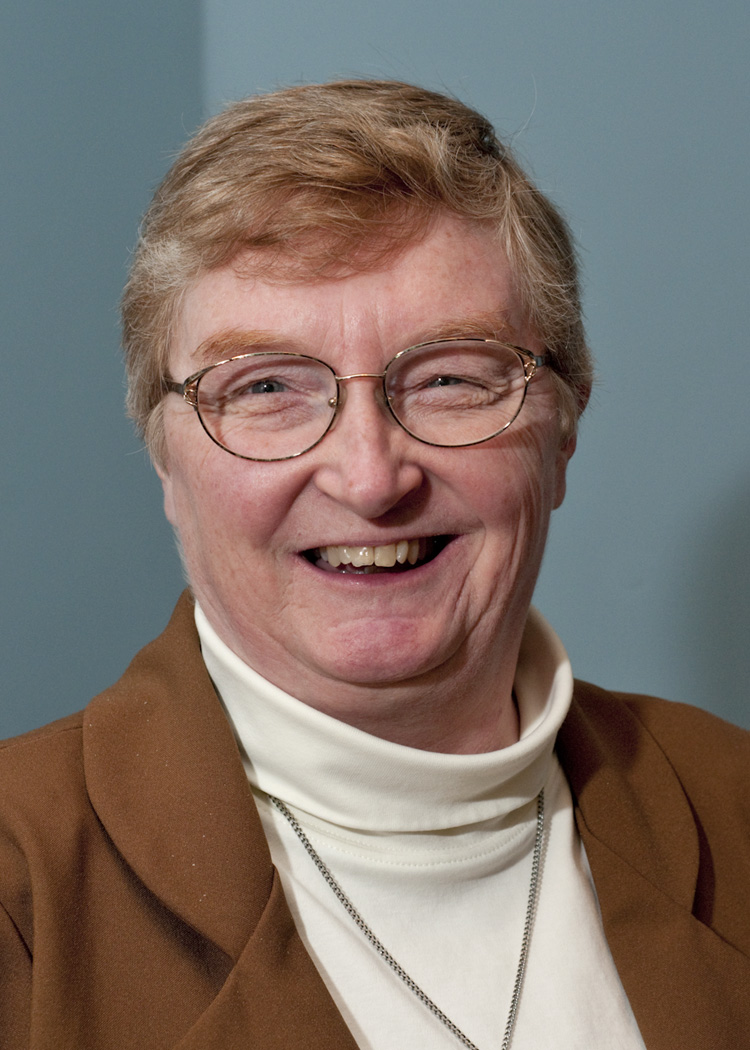
By Sister Katie Eiffe, CSJ
As Jesus spoke to his disciples at the Last Supper, he promised to send the Paraclete — the Holy Spirit — to them. Even as they dreaded the reality of his leaving them, he reassured them with the promise of the Spirit.
“Because I have had all this to say to you, you are overcome with grief.
Yet I tell you the sober truth: It is much better for you that I go.
If I fail to go, the Paraclete will never come to you, whereas if I go,
I will send him to you.” (John 16: 6-7)
As Jesus continued, he said “When he comes, however, being the Spirit of truth he will guide you to all truth.” (John 16:13)
Still, though we know the Spirit as the Third Person of the Trinity, and though we have some understanding of having received the Spirit at Baptism and again at Confirmation; though some of us can name the seven gifts and the twelve fruits of the Holy Spirit, I suspect that, for many of us, the Holy Spirit may remain the most mysterious element of the mystery of the Trinity.
For example, when you pray, to whom do you pray? Do you pray to the Father?
Do you pray to Jesus? Do you pray to (for lack of a better term) a “generic God”?
One of the most profound statements of wisdom I ever received was when my spiritual director, many years ago, said to me: “Katie, pray to the Holy Spirit. It’s the one prayer that God cannot refuse.” Intriguing to me then…and even more so, now.
So, who is the Holy Spirit, and how do we “grow in the Spirit”?
Well, once again, I must return to the Doctrine of the Trinity, for it is, as theologian Michael Downey writes in his book Altogether Gift: A Trinitarian Spirituality, “the central mystery of Christian faith and life.”
We know, of course, that our human language “limps” in our attempts to articulate what we believe. God is always greater than our feeble attempts to describe God. God is always more than our human mind and heart and language can comprehend or capture. Nevertheless, we are familiar with the language of the Creed…we believe in the Father…and in the Son…and in the Holy Spirit.
Father Michael Himes, a theologian at Boston College, cites the language that St. Augustine used in the fifth century to get at the doctrine of the Trinity: Lover, Beloved, and the Love that is eternally shared among them … and poured out into our world! St. John writes simply (and profoundly) in the First Letter of John, that “God is love.” (1 John 4:8) God is love! Michael Downey reflects further: “The grammar of the Trinity is meant to convey the simply astonishing truth: ‘God is love….God’s Word is spoken; God’s Spirit is poured forth. The life and love of God are not past tense, but present, ecstatic, alive, outreaching, gifting here and now.’ ”
Sister Elizabeth Johnson, in her book Quest for the Living God, writes “God lives as the mystery of love. Human beings are created in the image of this God. Therefore, a life of integrity is impossible unless we also enter into the dynamic of love and communion with others.”
Ah, there is the key to growing in the Spirit, I think! Our God has revealed God’s self as a communion of love which is not only the essence of who God is, but an invitation to us to enter into the very communion that we know as Trinity!
How does God love? Completely, unconditionally, eternally God is the pure and perfect gift of self!
How are we called to “image” this God? By loving completely, unconditionally, eternally. By offering, as best we can in our human (thus limited) way, the pure and perfect gift of our self to others in this world, in the very circumstances of our individual and communal lives.
How do we grow in the Spirit?
First, by accepting the truth that God is passionately in love with us! Indeed, by believing that God has invited us into the very inner dynamic of the Trinity, into that communion of love. God has chosen to enter into relationship with us!
Second, by remembering that wise counsel — “Pray to the Holy Spirit!” It is as simple as invoking the Spirit’s presence and guidance: “Come, Holy Spirit!”
Third, by striving to live as disciples of the Risen Lord, who came not to die for us, but to show us how to live…in communion with the Father and the Son through the Spirit. By striving to love completely, unconditionally, eternally. Again, Sister Elizabeth writes, “Knowing God is impossible unless we enter into a life of love and communion with others.”
A final word, from Catherine Mowry LaCugna, from her book God For Us: The Trinity and Christian Life:
“Living faith in the God of Jesus Christ means being formed and transformed by the life of grace of God’s economy: becoming persons fully in communion with all; becoming Christ to one another; becoming by the power of the Holy Spirit what God is: love unbounded, glory uncontained.”
Grow in the Spirit!
(Sister Katie is diocesan director of the Office of Faith Formation.)




